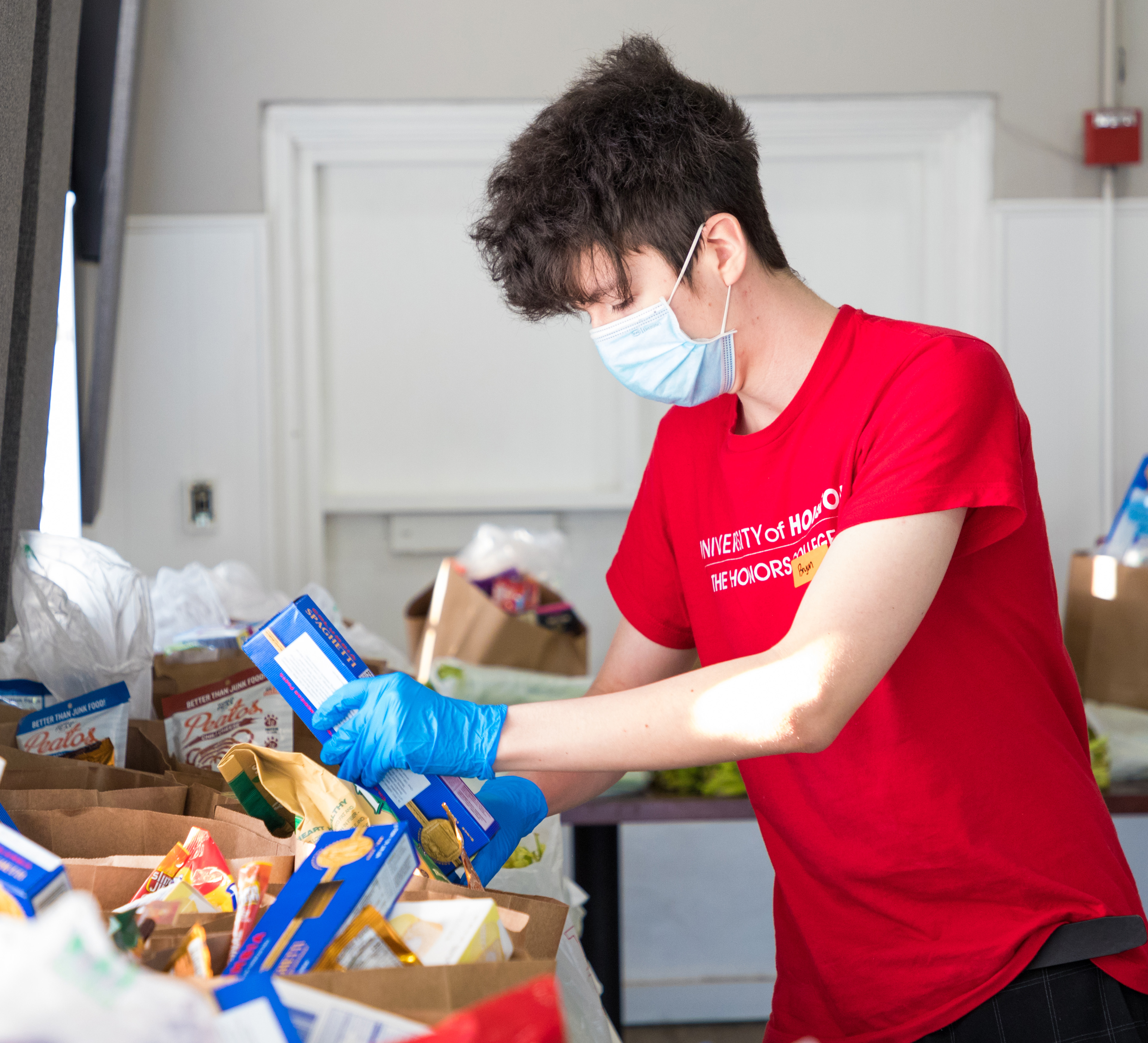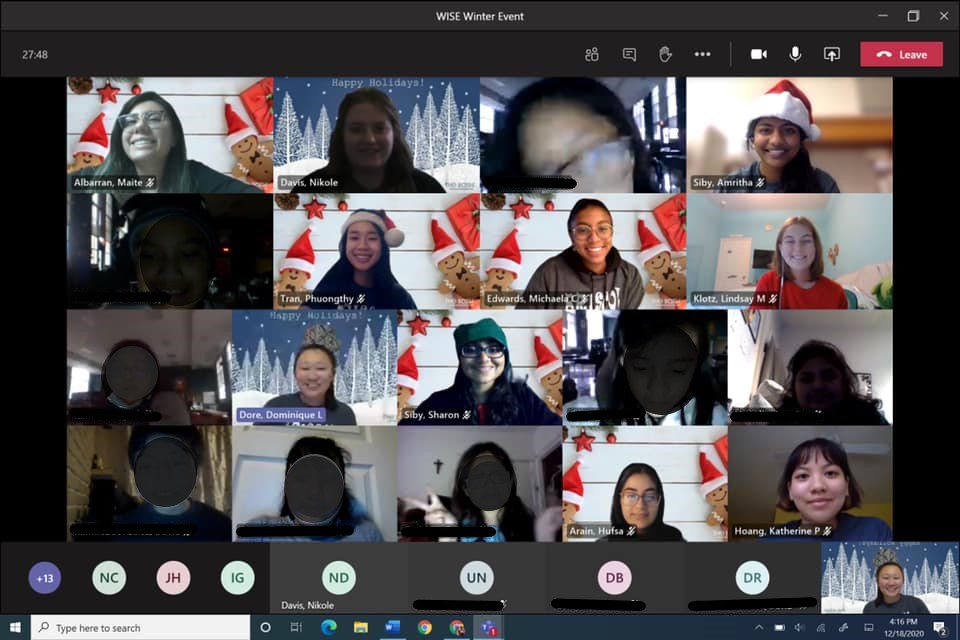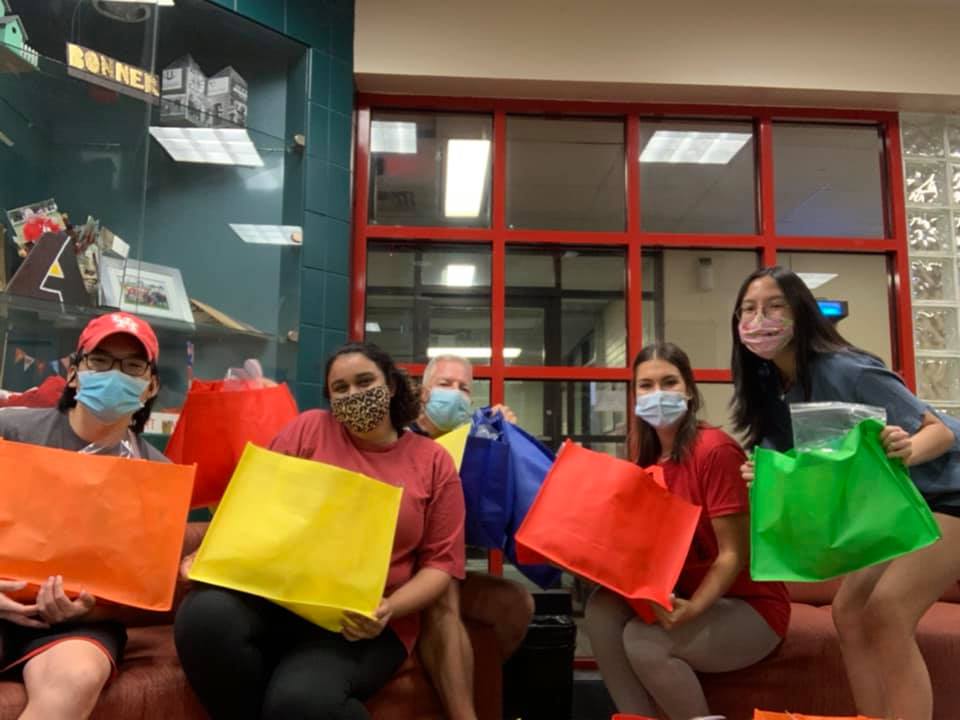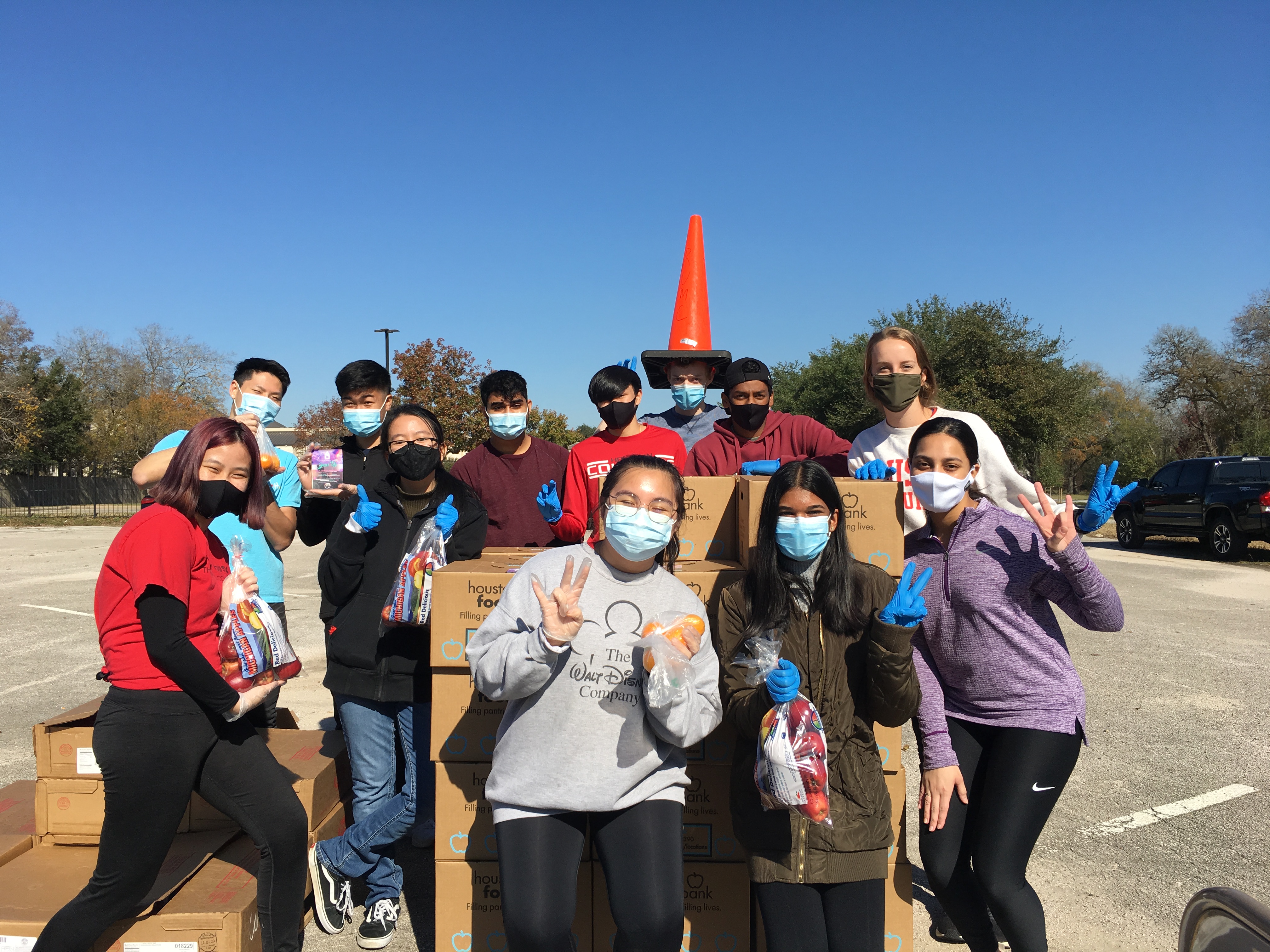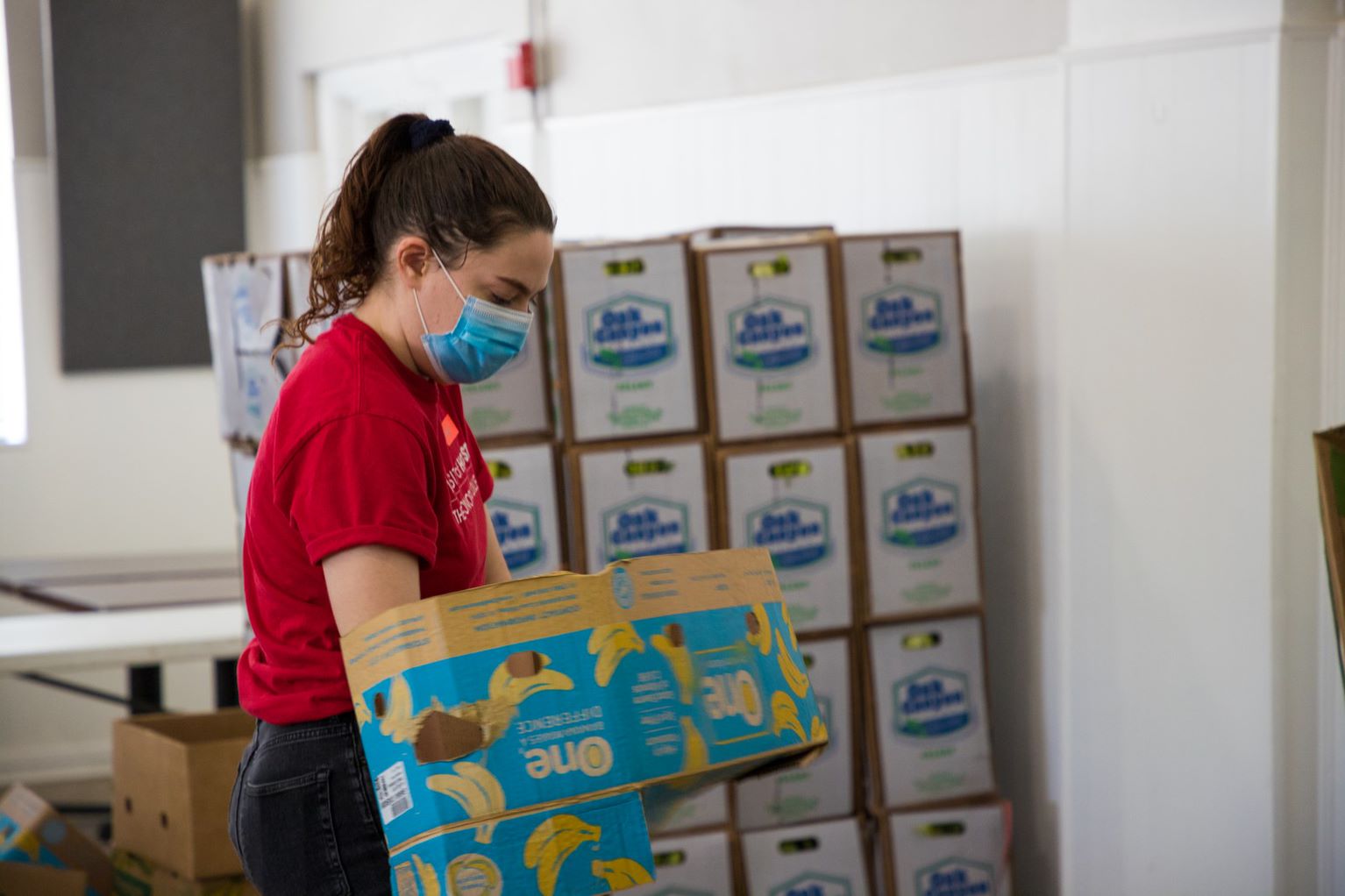
Bonner Leaders Thrive Despite the Pandemic
Bonner in the News
Bonner Leaders Thrive Despite the Pandemic
By, Jillian Holden
May 2021
The coronavirus pandemic has thrown much of everyday life into upheaval, but the Bonner Leaders program in the Honors College has not stood still. In fact, 85 students in the Bonner program have been actively involved in civic engagement, consistently devoting 5-10 hours a week to service work centered on issues such as food insecurity and educational inequality to improve the lives within the Houston community.
“Like everyone else, our students have really struggled this year. The weight of the pandemic, family and personal struggles, and unrelenting Zoom fatigue have taken their toll, and the Bonner students often voiced their struggle to find the motivation and energy to keep going,” Trinity Rinear, assistant director of the Bonner Leaders program, said. “That’s what makes their service and collaboration with Houston community partners all the more impressive.”
The Bonners Leaders program presents students with an opportunity to learn and utilize critical skills such as teamwork, project planning and resource allocation, and COVID-19 gave students unique opportunities to apply those skills and see the aftereffects on the community they served. The Bonner program forms leaders sensitive to the suffering of their community, and Bonner students have already logged an impressive 7,198.25 service hours this year, some serving 200-300+ hours.
“The Bonner Leaders program offers students great leadership and character-building experiences that enhance their classroom work. Students come to Bonner altruistic but with little knowledge of how to implement projects to fight poverty,” Douglas Erwing, director of the Bonner Leaders program stated. “In Bonner, we teach them how to translate their desire to do good into practice through mentoring about goal setting, planning, management and teamwork. They find purpose in our program, and they discover that through their collective efforts, they can help to empower fellow Americans to make their dreams a reality.”
Simultaneously working to transform four out of the five Bonner projects online to continue serving those in need, Bonner partnered with Stephen F. Austin High School, KIPP Houston High School, KIPP Sunnyside High School, Shearn Elementary School and Briscoe Elementary School to offer STAAR, ACT and SAT mentoring and tutoring in elementary writing and science.
“All of our projects were created by students at one point, some who have since graduated, and they are run, developed and improved by the current students,” Rinear said. “We really facilitate their learning, mitigate intrapersonal issues and help coordinate with partners, but they have always been the ones running their projects, conducting data analysis and making improvements or adjustments where needed.”
The Food Insecurity Team has tirelessly worked alongside the Houston Food Bank, Riverside Methodist Church, New Hope Housing Inc. and Yates High School to partner and collaborate in leadership, creating and completing projects centered on food redistribution and serving the Third Ward community. By continuing face-to-face service throughout COVID-19, the program expanded and provided the community inspiration in dire circumstances.
“We have a lot of pre-health students in Honors, and they tend to be interested in the food work just because it is more closely related to health,” Rinear said. “There tends to be more interest in the food insecurity work overall, and there has been a lot of it this year, so even students previously doing education projects have begun to help, to branch out and do more.”
Bonner Leaders have continued to academically excel, winning seven Honors Outstanding First Year Student Awards, two DAAD Research Internships in Science and Engineering in Germany, two National Science Foundation Graduate Research Fellowship Program grants, three selected as a Fulbright English teaching assistant and three Fulbright semi-finalists as well as three Action Research in Communities fellows chosen by the Office of Undergraduate Research and Major Awards.
“One of the things that we are most proud of is how we pivoted, continued and remained robust,” Erwing stated. “I am really proud of the way we understood the strengths and weaknesses of our program and were able to migrate online where possible and enhance service, even reaching people we had not been able to previously reach.”
